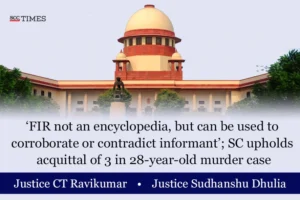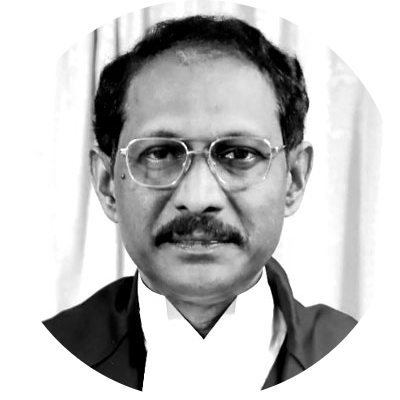Supreme Court: In a criminal appeal against the judgment of acquittal passed by the Madhya Pradesh High Court reversing the conviction recorded by the Trial Court against the accused persons, the Division Bench of CT Ravikumar* and Sudhanshu Dhulia, JJ. agreed with the High Court’s decision of acquittal and refused to interfere with the same. The Court upheld the High Court’s view in finding the prosecution witnesses unreliable.
Factual Matrix
On 01-10-1996, at about 1.00 pm, the accused persons allegedly murdered the deceased. The prosecution had examined 19 witnesses including the real brothers of the deceased and eyewitnesses. Placing reliance on oral testimonies of prosecution witnesses, the minor brothers and mother convicted the accused persons for an offence punishable under Section 302 of the Penal Code, 1860 (‘IPC’) and were sentenced to undergo imprisonment for life and to pay a fine of Rs. 35,000/-. The High Court acquitted them of the offences with which they were charged and allowed the appeal in the impugned judgment of acquittal.
Analysis and Decision
The Court reiterated that FIR is not an encyclopedia disclosing all facts and details relating to the entire prosecution case. FIR is not meant to be a detailed document containing a chronicle of all intricate and minute details. The Court stated that whether the omission is one which seriously impeaches the credibility of the witness and is sufficient to reject the testimony of the informant would depend upon the question whether it is of an important fact and whether that fact was within the knowledge of the informant, going by the case of prosecution unravelled through the witness concerned. Further, the Court reiterated that even though FIR is not meant to be an encyclopedia containing chronicle of all intricate and minute details, it could be used to corroborate its maker under Section 157 of the Evidence Act, 1872 or to contradict its maker viz., the informant under Section 145 of the Evidence Act to establish whether he is a trustworthy witness or not.
The Court while dealing with the oral evidence of the mother of the deceased, at whose instance FIR was registered against the respondents herein, noted that during the cross-examination she had not deposed at all about a dying declaration made to her by the deceased son. The Court stressed that the dying declaration itself is not a strong piece of evidence and therefore, when it is verbal and that too, allegedly made to a close relative, to be treated with care and caution. Referring to the Trial Court’s decision, the Court said that the same was without due care and caution. From the Trial Court’s decision, the Court gathered that after considering the aspect of the dying declaration in such a light manner, believing the oral evidence of the deceased’s mother as well, the Trial Court arrived at the finding that one of the accused had beaten deceased with sickle, and another had beaten him with bamboo lathi (equipped with Farsa) and one inflicted axe blow on him and thereby caused his murder.
Further, the Court noted that the prosecution failed to establish that when the mother of the deceased reached the place of occurrence the deceased was in a fit state of mind to speak or talk relevantly. Hence, the Court held that the High Court was perfectly justified in considering the oral testimony of mother and taking serious note of the serious omission brought out from her. Regarding the oral testimonies of other prosecution witnesses who allegedly witnessed the incident that led to the death of the deceased, the Court held that the High Court rightly found them to be unreliable. The Court also added that the defence had succeeded in bringing out the fact that both the minor brothers of the deceased had omitted to mention certain material facts to police while their statements were recorded, in regard to the oral evidence of their mother. The Court stated that the omissions on their part were not minor contradictions to be taken lightly as according to them they did not name the accused persons in their previous statements made to the police.
CASE DETAILS
|
Citation: Appellants : Respondents : |
Advocates who appeared in this case For Petitioner(s): For Respondent(s): |
CORAM :



